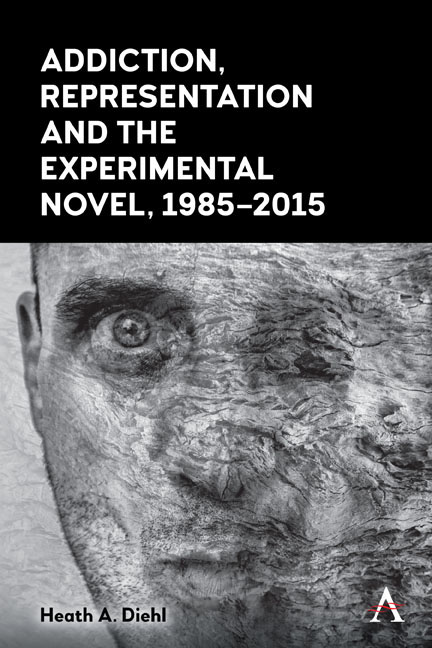Summary
One can feel obliged to look at [representations] that record great cruelties and crimes. One should feel obliged to think about what it means to look at them.
— Susan Sontag, Regarding the Pain of OthersAt least since the advent of Modernism, which Thomas B. Gilmore, in his book Equivocal Spirits: Alcoholism and Drinking in Twentieth-Century Literature (1987), regards as a period of widespread cultural addiction, the addict has densely populated the history of the Western novel, stumbling blindly through its pages often as an object of scorn and derision to be looked at and pitied, but rarely to be understood in her/ his/ their complexity and treated with compassion. Indeed, pity has long constituted the default emotion assigned to the addict by Western writers, a not unsurprising trend given the etymological origins of the term “addiction” in the Latin addictiō, which denotes “the binding of a person to another as a servant, adherent, or disciple.” Commonly regarded as a form of psycho-physical enslavement to a controlled or/ and an illicit substance, addiction persistently has been represented within the novel, and, more broadly, within myriad forms of Western cultural representation, not as a disease (despite the wealth of scientific evidence that insists it is precisely that), but as a self-imposed moral quandary that shackles a person to a drug by way of a weak will.
When viewed through the lens of pity, any suffering, but particularly suffering that is perceived as self-imposed, as addiction commonly is, always and only reads as a spectacle of degradation, whether emotional, financial, moral, physical or/ and psychological. Here, I employ the term “spectacle” in a manner similar to Emily Roxworthy, who, in The Spectacle of Japanese American Trauma: Racial Performativity and World War II (2008), defines the term as “the staging of an event and arrangement of an audience that rewards passive consumption and deters engaged witnessing, most often through what twenty-first-century Americans increasingly recognize as a strategy of ‘shock and awe.’ “ Stated differently, Roxworthy suggests that trauma, by default, is framed within Western modes of representation by extreme, albeit not necessarily exaggerated, pathos: for example, the presentation of a worst case outlier as representative of the whole.
- Type
- Chapter
- Information
- Publisher: Anthem PressPrint publication year: 2020



